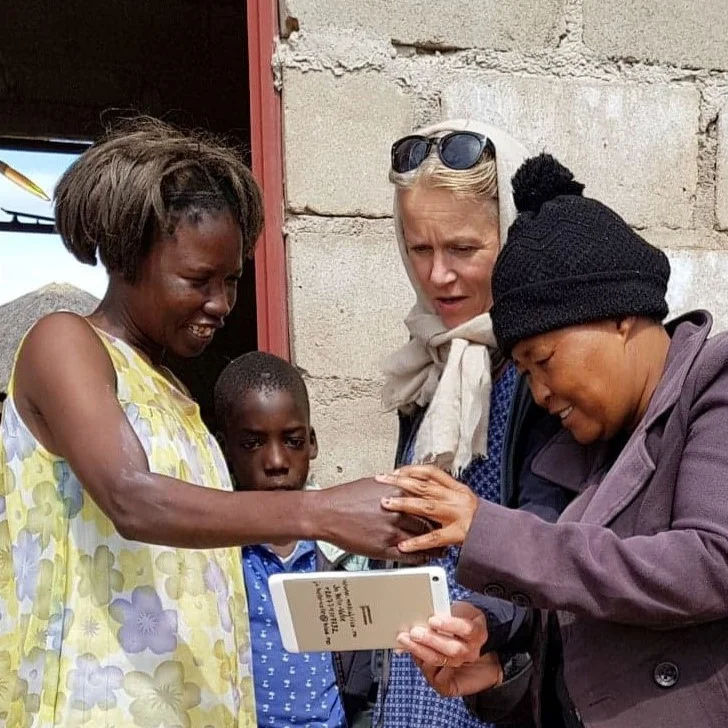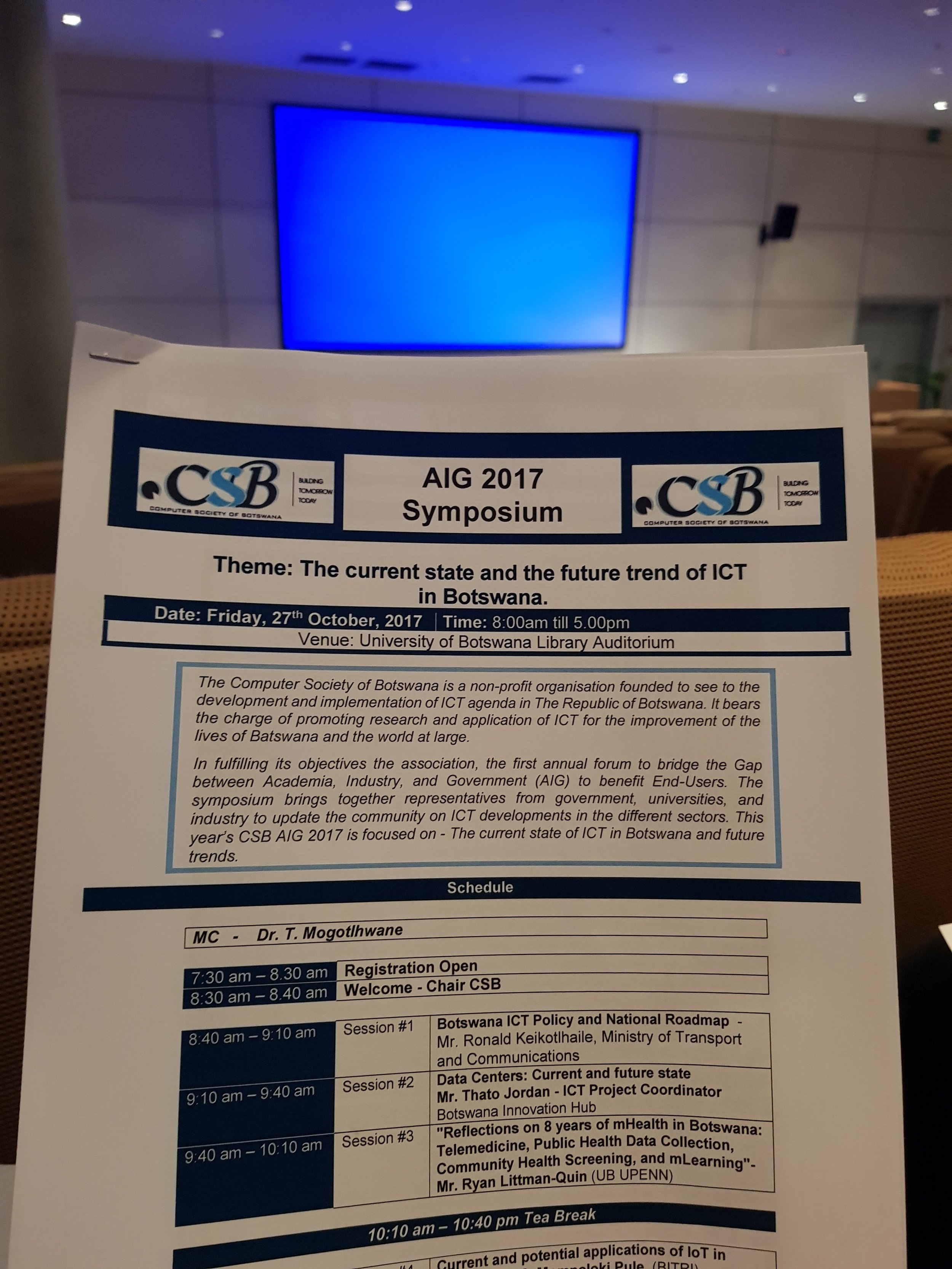Any use of new media presupposes an infrastructure that can deliver the digital signals and people with means to access and use it. While the West has seen the computer and fixed internet lines as the dominating platform and infrastructure for the longest period of internet development, the African continent have moved right to mobile platforms and mobile signals.
Botswana
Botswana is no exception. More than 95% of all internet traffic in the country is on mobile platforms although around9% of the population are internet subscribers which is rather high in comparison to other African countries. The coverage of SIM-cards or mobile subscriptions in Botswana is moreover among the six highest in the world: 167 pr 100 inhabitants - i.e. an average of more than one and a half SIM-card pr inhabitant. A RIA survey from 2012 indicate that 80 % of batswana own a phone , but that only 30 % had mobiles capable of browsing the internet. However, although sales statistics point to smartphones being sold in ever increasing numbers (ref?), feature phones or 'dumb phones' that makes accessing internet difficult or impossible still seem to be the more common than the former.
Maitlamo, the countrys ICT policy
Although Botswana has scored well on several indicators related to development of the internet, it has in comparison to other African countries been among the most expensive and complicated when it comes to costs (RIA). Yet, developments are fast and the figures outdate quickly. Also, such statistics tells us relatively little about how everyday internet reality for Batswana is.. Finding out more about this and what the internet is used for is a task in the Mediafrica project.
It was among the 10 poorest countries in the world when it gained its independence in 1966. The country has since experience a remarkable growth (due to the discovery of diamonds), and reached in the 90’s status as a middle income country. To lay ground for an after-diamond economy and bridging the global divital divide, large sums has since the early 200's(?) been invested to build up ICT infrastructure. The vision is that digital connection to world markets, to education and for social life in general shall ensure sound development for Botswana (vision 2016).
Digital reality?
Below are some snapshots of the various online connection possibilities we have become familiar with during our first month of fieldwork.
Ways to get online?
Airtime - Wherever you go in Gaborone you see people with mobile phones; carrying them in their hands texting, talking, tapping. There are numerous small booths selling sweets- and airtime (cost for time spent talking/texting on a mobile phone) for the three different operators (Mascom, Orange and Be). You can buy small scratch cards or sms transfers of10, 20 or 100 Pula Airtime for the three operators; Mascom, Orange and Bee. “What is this airtime used for?” we asked. “Topping up the mobile” was the answer. Those who sell report there are many buyers every day. Enough to keep them going. We associate airtime to voice calls and sms’es mainly (?), but is it also a way Batswana connect with the internet? Yes, to some Batswana that’s the way, as the story of Kody and Keitumetse illustrates below.
Gaborone is the area with best internet infrastructure in Botswana. Our own first access to internet here – as we did not yet have Bastwana simcards – was through the WI-Fi’s available at the guest house where we stayed and the various cafes, restaurants and internetcafes we visited. In all these places WiFi was a service connected to other expenses – albeit not publicly ‘free’. It seems difficult to find places with ‘free wifi’ in Gaborone (except for at the university, but that is only for students and staff with usernames). The available ‘extra service’ wifi’s were also often rather weak/slow and unstable as many people use them simultaneously (although BOCRA has set a standard for these).
Could mobile internet subscription provide better internet access than the wi-fi’s? Finding out what was the various mobile internet subscription possibilities proved difficult. We therefore decided to visit the operator who advertised 4G possibility. At first sight the price did not appear too terrifying to a Norwegian – P 149 for one month with up to 800 MB – so we went for it. With some help we managed to go online, and to use our phone as a hot-spot for our laptops. However, given our habitual high use-pattern the 800 MB’s went quickly. And, when inspecting the connection we found the 4G surfing was not a reality, our phones (being brand new 4G enabled) only connected to the 2G network (Whereas 2G - the second generation of mobile technology – worked best for making calls and sending text messages and 3G made it possible to access the internet more effectively through the mobile phone, 4G services are supposed to make surfing the web from mobiles as speedy as on home broadband allowing for video streaming, mapping and social networking sites).
Not finding the mobile internet solutions all that satisfactory we inquired about the fixed line internet possibility and decided to try out the most affordable package (bronze). The costs for fixed internet connection are said to have been reduced by 75 percent since 2013 and we were offered a montly rate of 450 Pula (?). Although this connection was a bit slow and had interruptions it did, given som patience, accommodate many of our ordinary surfing needs.
The young are on Facebook, but wherelse? – and what about the older generation?
There are few countries in the world where the difference between rich and poor are as large as in Botswana. The Gini-coefficient, which is the most common measure of differences in wealth within a population, is a staggering 0.5??, which indicates that a great proportion of the population is poor – in spite of the fact that Botswana is one of the wealthiest countries in Africa. This means many Batswana cannot access internet the way we do. Yet, most young adult Batswana seem to have some access to internet from their mobile. How do they do it- and for what?
Kody, a 24 year old woman coming from the Francistown area but living just outside Gaborone, has a daughter of two and a boyfriend in a steady, relatively well paid job but stays alone with her daughter. We met her as she at about six was leaving her job as a security guard in Gaborone, eager to get home to her daughter who was looked after by a young, distant relative. Thepi has a five year old cellphone. She got it from her father when she finished school and according to her it made a huge difference in her life allowing her to keep better track of sociality with her friends, entertain herself when feeling lonely and now keeping in touch with family when staying so far away. Thepi does not have an email address and her worn,scratchy and shady mobile cannot connect to internet through wifi or hot-spot. Yet, she IS on Facebook and a frequent user of What’s app. So how does Thepi connect? Thepi shows us how.









![20181201_112301[1].jpg](https://images.squarespace-cdn.com/content/v1/551d20b1e4b0eeef9d4b4ba0/1551802930222-IXZ7OX4H3B97XL43H5BL/20181201_112301%5B1%5D.jpg)










